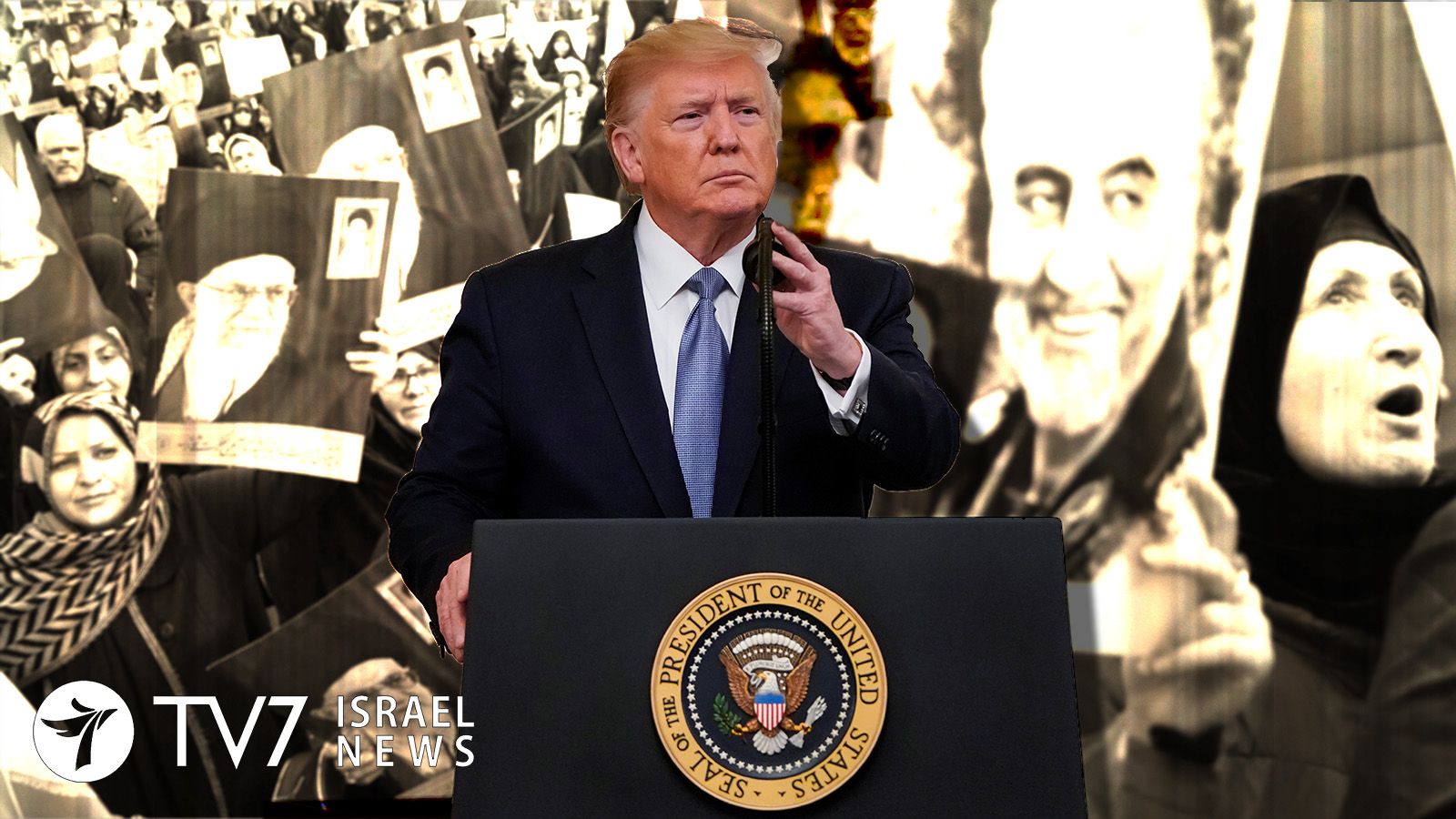Israeli Prime Minister Benjamin Netanyahu spoke with U.S. President Donald Trump about “critical bilateral and regional issues” according to a statement from the White House, with no further elaboration.
The telephone conversation between the two leaders followed Netanyahu’s declaration of Israel’s unwavering support for the United States and the U.S. President. The Israeli leader congratulated Trump for “acting swiftly, boldly and resolutely” in his decision to assassinate Islamic Revolutionary Guards Corps commander of the Quds Force Qassem Soleimani, whom Netanyahu branded as “the architect and driver of Iran’s campaign of carnage and terror throughout the Middle East and throughout the world.”
In a televised address, President Trump began by saying he was “pleased to inform you the American people should be extremely grateful and happy” that Iranian missile strikes on bases in Iraq Wednesday (January 8) had not harmed any U.S. troops stationed there and damage was minimal, an outcome he said showed Tehran wanted to de-escalate a standoff. “Our great American forces are prepared for anything,” he said, before stating, “Iran appears to be standing down which is a good thing for all parties concerned and a very good thing for the world.”
With intelligence reports indicating Tehran’s intention to alleviate tensions with Washington, including instructions for its regional proxies against attacks on American targets; President Donald Trump appears to be backing away from his previous threat of a military response to any Iranian aggression against the U.S. or allies. Instead, “As we continue to evaluate options in response to Iranian aggression, the United States will immediately impose additional punishing economic sanctions on the Iranian regime,” he said, which would remain in effect “until Iran changes its behavior.”
The U.S. leader also reiterated his call that, “Iran must abandon its nuclear ambitions and end its support for terrorism,” while stressing “The time has come for the United Kingdom, Germany, France, Russia and China to recognize this reality. They must now break away from the remnants of the Iran deal or JCPOA, and we must all work together toward making a deal with Iran that makes the world a safer and more peaceful place.”
Trump’s call on world powers to join Washington in renegotiating new terms with Tehran came as the Ayatollah Regime announced its fifth and final actions to abrogate its commitment to the Joint Comprehensive Plan of Action (JCPOA). The move infuriated Europe – which has been trying to salvage the 2015 pact which clearly failed to deliver on both nuclear limitations and economic benefits for Iran. German Foreign Minister Heiko Maas announced that the E3 partners France, Britain and Germany, “are still of the opinion that this is an important deal which stops Iran from having a nuclear bomb.” Berlin’s top diplomat said the partners “won’t just stand and look while Teheran announces their withdrawal,” but would soon be holding talks to “discuss the situation.”
Australian Prime Minister Scott Morrison welcomed Trump’s statements, saying that Canberra “wants to see and encourage restraints and de-escalation” in the volatile Middle East. Morrison further underlined that Australia will maintain its military presence in Iraq as part of the U.S.-led coalition, in continued commitment to help train local security forces who ultimately combat the Islamic State and other Jihadist forces. Morrison also noted that an Australian naval vessel would sail toward the Strait of Hormuz as slated this week, to help protect maritime shipping lanes in the strategic area.
In other developments, U.S. Secretary of State Mike Pompeo hosted his visiting-British counterpart Dominic Raab in Washington, where they held extensive discussions on the volatile situation in the Middle East. Foreign Secretary Raab later described the meeting as “good, positive and constructive,” and said it was “made clear” that London recognizes “the danger and the threat that Iran poses to the region” and the “U.S. right to self-defense,” but that “at the same time, of course, we want to see the tensions de-escalated. We want to find a diplomatic route through.”
After stressing that the United Kingdom is “absolutely committed, as our American and European partners are, to avoiding Iran acquiring a nuclear weapon,” Secretary Raab said, “And we’ve obviously been committed to the JCPOA, but we’ve reached a point where non-compliance has been acute in the most recent steps taken by Iran that obviously we’re going to be looking very hard at what should happen next. He then warned Iran that unless it returns to full compliance with the nuclear deal, the E3 could potentially trigger the DRM mechanism to reinstate Europe’s own crippling economic sanctions against the Islamic Republic that had been in place prior to 2015.
The top British diplomat also seized the opportunity to condemn the Iranian ballistic missile attack against two Iraqi installations that houses U.S.-led coalition forces.
